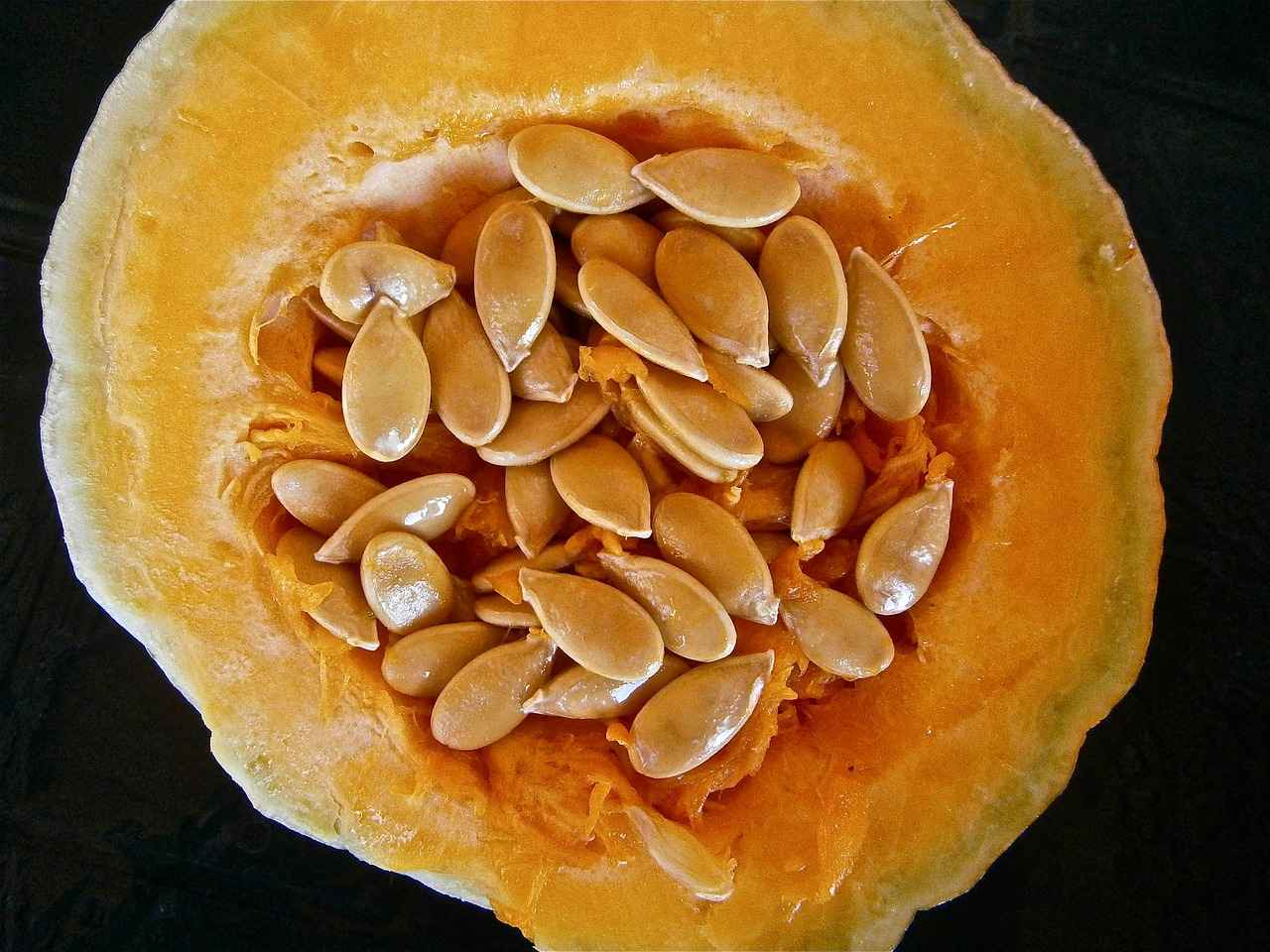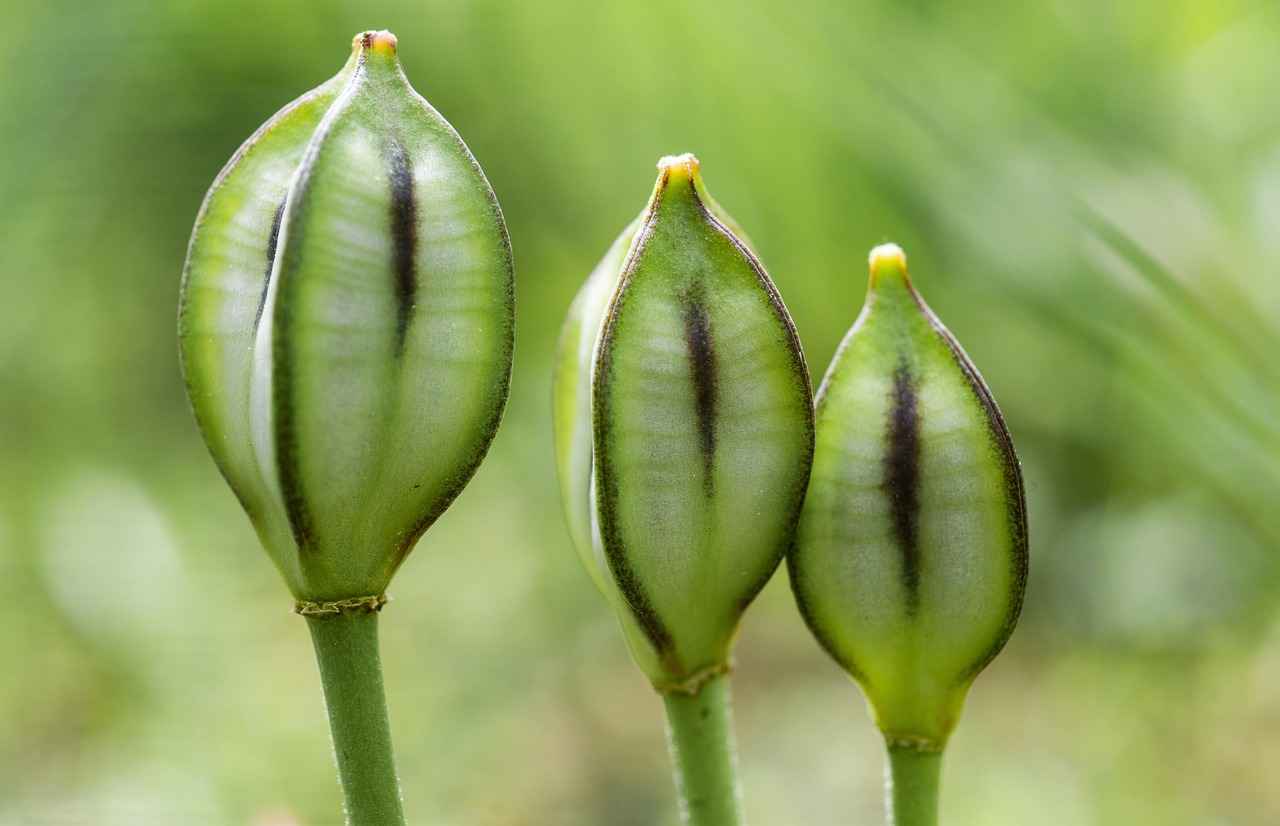Chia seeds are more than just a trendy health food; they are a nutrient-dense superfood that can significantly enhance your diet and overall well-being. This article explores their impressive nutritional profile, diverse health advantages, and practical ways to incorporate them into your daily meals.
Chia seeds come from the Salvia hispanica plant, which is native to regions of Mexico and Guatemala. These tiny seeds have gained immense popularity due to their rich nutrient content and versatility, making them suitable for various dietary preferences, including vegan and gluten-free diets.
Chia seeds are celebrated as a superfood because they are packed with omega-3 fatty acids, fiber, protein, and essential minerals. This combination makes them a powerful addition to any diet, supporting heart health, digestion, and weight management.
- High in Omega-3 Fatty Acids: Chia seeds are one of the richest plant sources of omega-3s, which are crucial for maintaining heart health and supporting brain function.
- Loaded with Fiber: With a high fiber content, chia seeds promote digestive health and help maintain a healthy weight by fostering a feeling of fullness.
- Protein Source for Vegetarians and Vegans: They provide a complete protein profile, making them an excellent choice for those looking to meet their protein needs without animal products.
The soluble fiber in chia seeds absorbs water, creating a gel-like substance that aids digestion and promotes regular bowel movements. This characteristic is essential for maintaining gut health.
Chia seeds can be beneficial for weight management due to their ability to expand in the stomach, promoting a sense of fullness and reducing overall calorie intake. Their low-calorie yet nutrient-dense profile makes them an ideal addition to weight loss diets.
Incorporating chia seeds into your meals is easy and versatile. Here are some practical ideas:
- Add them to smoothies for an extra nutrient boost.
- Mix into yogurt or oatmeal for added texture and nutrition.
- Use in baking to enhance the nutritional value of muffins and breads.
While chia seeds are generally safe for most people, some individuals may experience digestive discomfort if consumed in excess or without adequate hydration. It’s essential to drink plenty of water when consuming chia seeds to avoid bloating or gas.
Individuals with specific allergies or digestive disorders should consult a healthcare provider before adding chia seeds to their diet. It’s advisable to seek medical advice, especially for those with existing health conditions.
In summary, chia seeds are a nutrient-dense superfood that offers numerous health benefits. Their versatility allows for easy incorporation into meals, enhancing both nutrition and enjoyment. By including chia seeds in your diet, you can take a significant step toward improving your overall health and well-being.

What Are Chia Seeds?
Chia seeds are small, black or white seeds derived from the Salvia hispanica plant, which is native to Mexico and Guatemala. These tiny seeds have been consumed for centuries, dating back to the ancient Aztecs and Mayans, who valued them for their energy-boosting properties and nutritional benefits. In recent years, chia seeds have gained immense popularity as a superfood due to their impressive health benefits and versatility in various diets.
Chia seeds are often labeled as a superfood because they are packed with essential nutrients. They are rich in omega-3 fatty acids, fiber, protein, and vital minerals, making them a powerful addition to any diet.
- Omega-3 Fatty Acids: Chia seeds are one of the richest plant-based sources of omega-3 fatty acids, which are crucial for maintaining heart health and supporting brain function.
- High Fiber Content: The soluble fiber in chia seeds helps improve digestive health and promotes a feeling of fullness, which can aid in weight management.
- Complete Protein: For vegetarians and vegans, chia seeds provide a complete protein profile, containing all nine essential amino acids.
The unique soluble fiber in chia seeds absorbs water, forming a gel-like substance that aids digestion. This gel can help regulate bowel movements and improve overall gut health.
- Regulation of Blood Sugar: The fiber content helps stabilize blood sugar levels, reducing spikes and crashes that can lead to cravings.
- Hydration: Chia seeds can absorb up to 12 times their weight in water, helping to keep you hydrated and supporting digestive function.
Chia seeds can be an effective ally for those looking to manage their weight. Their high fiber content promotes a sense of fullness, which can lead to reduced calorie intake.
- Satiety: The gel-like consistency of chia seeds expands in the stomach, helping to curb hunger and minimize snacking.
- Nutrient Density: With minimal calories but high nutritional value, chia seeds are an excellent addition to weight loss diets.
Chia seeds are incredibly versatile and can be easily integrated into a variety of dishes. Here are some simple ways to enjoy them:
- Add them to smoothies for an extra nutrient boost.
- Mix them into yogurt or oatmeal for added texture and nutrition.
- Use them as an egg substitute in baking by mixing chia seeds with water.
While chia seeds are generally safe for most individuals, some may experience digestive discomfort if consumed in excess or without adequate hydration. It’s essential to introduce them gradually into your diet.
- Digestive Issues: Overconsumption can lead to bloating or gas, especially if not consumed with sufficient liquid.
- Allergic Reactions: Though rare, some individuals may be allergic to chia seeds, experiencing symptoms like itching or swelling.
Individuals with specific allergies or digestive disorders should consult a healthcare provider before adding chia seeds to their diet. It’s advisable for those with existing health conditions to seek medical advice before introducing new superfoods like chia seeds.
In summary, chia seeds are a nutrient-dense superfood that offers numerous health benefits. Their versatility allows for easy incorporation into meals, enhancing both nutrition and enjoyment.

Why Are Chia Seeds Considered a Superfood?
Chia seeds have gained immense popularity in recent years, often hailed as a superfood due to their impressive nutritional profile and health benefits. But what exactly makes these tiny seeds so powerful? Let’s explore the reasons behind their superfood status.
One of the standout features of chia seeds is their remarkable amount of omega-3 fatty acids. These essential fats are crucial for maintaining heart health and supporting brain function. Omega-3s have been linked to reduced inflammation and improved cardiovascular health. In fact, chia seeds are one of the richest plant-based sources of these vital fatty acids, providing more than 5 grams per ounce.
Chia seeds are also an excellent source of dietary fiber. Just a single ounce contains about 11 grams of fiber, which is approximately one-third of the recommended daily intake. This high fiber content aids in digestion, promotes regularity, and can help maintain a healthy weight by promoting a feeling of fullness. When chia seeds come into contact with liquid, they can absorb up to 10-12 times their weight, forming a gel-like substance that slows down digestion and keeps you satiated for longer periods.
For those following a vegetarian or vegan diet, chia seeds offer a complete protein profile, containing all nine essential amino acids. This makes them an excellent protein source for individuals who may struggle to meet their protein needs through traditional means. Incorporating chia seeds into meals can help ensure adequate protein intake, especially for those on plant-based diets.
Chia seeds are also loaded with essential minerals such as calcium, magnesium, and phosphorus. These minerals play crucial roles in bone health, muscle function, and overall bodily processes. For instance, calcium is vital for maintaining strong bones, while magnesium supports muscle and nerve function. By including chia seeds in your diet, you can easily boost your intake of these important nutrients.
Another compelling reason to consider chia seeds a superfood is their high antioxidant content. Antioxidants help combat oxidative stress in the body, which can lead to chronic diseases and aging. The antioxidants in chia seeds, such as quercetin and chlorogenic acid, help protect cells from damage and promote overall health.
Chia seeds can also assist in maintaining hydration. When soaked in water, they expand and form a gel, which can help retain moisture in the body. This property makes them a great addition to smoothies and other beverages, especially in hot weather or during exercise.
Adding chia seeds to your diet is simple and versatile. They can be sprinkled on top of yogurt, blended into smoothies, or mixed into oatmeal. Additionally, chia seed pudding has become a popular dish, allowing for endless flavor combinations. By incorporating chia seeds into your meals, you can easily enjoy their numerous health benefits.
In summary, chia seeds are considered a superfood for several compelling reasons. Their rich nutritional profile, including high levels of omega-3 fatty acids, fiber, protein, essential minerals, and antioxidants, make them a powerful addition to any diet. By understanding and utilizing these benefits, individuals can enhance their overall health and well-being.
Rich Nutritional Profile
Chia seeds are often hailed as a superfood due to their remarkable nutritional profile. These tiny seeds are not only packed with essential nutrients but also offer a variety of health benefits that can enhance your overall wellness. In this section, we will explore the rich nutritional composition of chia seeds and why they are considered a powerhouse of health.
Chia seeds are a rich source of several vital nutrients, making them an excellent addition to any diet. Here’s a breakdown of their key components:
- Calcium: Chia seeds contain about 18% of the recommended daily intake of calcium in just one ounce. This mineral is essential for maintaining strong bones and teeth.
- Magnesium: With approximately 30% of the daily value in a single serving, magnesium plays a crucial role in over 300 biochemical reactions in the body, including muscle and nerve function.
- Antioxidants: Chia seeds are rich in antioxidants, which help combat oxidative stress and inflammation, promoting overall health.
- Omega-3 Fatty Acids: These seeds are one of the best plant-based sources of omega-3 fatty acids, which are important for heart health and brain function.
- Protein: Chia seeds provide a complete protein profile, containing all nine essential amino acids, making them an excellent choice for vegetarians and vegans.
- Fiber: A single ounce of chia seeds contains about 11 grams of dietary fiber, which supports digestive health and helps maintain a healthy weight.
The nutrients found in chia seeds contribute to various health benefits:
- Bone Health: The high calcium and magnesium content in chia seeds supports bone density and strength.
- Heart Health: Omega-3 fatty acids help reduce inflammation and lower cholesterol levels, contributing to cardiovascular health.
- Weight Management: The fiber in chia seeds aids in digestion and promotes a feeling of fullness, which can help control appetite and reduce calorie intake.
- Blood Sugar Control: The soluble fiber in chia seeds slows down the absorption of sugar, helping to stabilize blood sugar levels.
Adding chia seeds to your meals is simple and versatile. Here are some practical ways to include them in your diet:
- In Smoothies: Blend chia seeds into your favorite smoothie for an added nutrient boost.
- In Baked Goods: Substitute a portion of flour with chia seeds in recipes for muffins, pancakes, or bread.
- In Salads: Sprinkle chia seeds on top of salads for a crunchy texture.
- Chia Pudding: Mix chia seeds with milk or a milk alternative and let them sit overnight to create a delicious pudding.
In conclusion, chia seeds are a nutritional powerhouse that can significantly enhance your health. Their rich profile of calcium, magnesium, antioxidants, and omega-3 fatty acids makes them a valuable addition to any diet. By incorporating chia seeds into your meals, you can enjoy their numerous health benefits while adding variety to your diet.
High in Omega-3 Fatty Acids
Chia seeds have garnered attention as one of the richest plant sources of omega-3 fatty acids. These essential fats are crucial for maintaining optimal health, particularly for the heart and brain. But what exactly makes omega-3s so vital, and how can chia seeds play a role in your diet?
Omega-3 fatty acids are a type of polyunsaturated fat that the body cannot produce on its own. Therefore, they must be obtained through diet. The three main types of omega-3s are:
- Ala (Alpha-linolenic acid): Found in plant sources like chia seeds.
- Epa (Eicosapentaenoic acid): Primarily found in fatty fish.
- Dha (Docosahexaenoic acid): Also found in fatty fish and important for brain health.
Research indicates that omega-3 fatty acids can significantly impact heart health. They help lower triglyceride levels, reduce inflammation, and may even lower blood pressure. By incorporating chia seeds into your diet, you can boost your intake of these beneficial fats without the need for fish.
Omega-3 fatty acids are essential for brain health. They contribute to the structure of brain cells and are vital for cognitive function. Studies suggest that adequate omega-3 intake may help reduce the risk of depression and anxiety. Chia seeds, being a plant-based source of omega-3s, make it easier for those following vegetarian or vegan diets to meet their needs.
Adding chia seeds to your diet is simple and versatile. Here are some practical ways to do so:
- Chia Seed Pudding: Mix chia seeds with your choice of milk or plant-based milk, let it sit overnight, and enjoy a nutritious breakfast.
- Smoothies: Blend chia seeds into your favorite smoothie for an added nutritional boost.
- Baking: Incorporate chia seeds into muffins, breads, or energy bars for enhanced texture and nutrition.
While omega-3 fatty acids are beneficial, it’s essential to consume them in moderation. Excessive intake may lead to potential side effects, such as:
- Increased Bleeding Risk: High doses of omega-3s can thin the blood, increasing bleeding risk.
- Digestive Issues: Some individuals may experience gastrointestinal discomfort, such as bloating or diarrhea, if chia seeds are consumed in excess.
Incorporating chia seeds into your diet is an excellent way to increase your omega-3 fatty acid intake. Their numerous health benefits, including support for heart and brain health, make them a valuable addition to any balanced diet. With their versatility, chia seeds can easily fit into various meals, ensuring you reap the benefits of these essential nutrients.
Loaded with Fiber
Chia seeds, often hailed as a superfood, are not only versatile but also packed with essential nutrients. One of their standout features is their remarkably high fiber content, which plays a crucial role in promoting digestive health and managing weight.
Chia seeds contain about 34 grams of fiber per 100 grams, making them one of the richest sources of dietary fiber available. This fiber is primarily soluble fiber, which dissolves in water and forms a gel-like substance. This unique property contributes significantly to their health benefits.
- Promotes Regularity: The gel-like consistency of soluble fiber helps to bulk up stool and facilitate its passage through the digestive tract, thereby reducing the risk of constipation.
- Aids in Nutrient Absorption: By slowing down digestion, soluble fiber allows for better absorption of nutrients, ensuring that your body receives the vitamins and minerals it needs.
- Supports Gut Health: The fermentation of fiber in the gut produces short-chain fatty acids, which are beneficial for gut health and can help prevent digestive disorders.
The high fiber content in chia seeds not only supports digestive health but also plays a vital role in weight management. Consuming chia seeds can lead to a feeling of fullness, which helps control appetite and reduce overall calorie intake.
When chia seeds are mixed with liquid, they expand and form a gel, which can increase satiety. This means that individuals who incorporate chia seeds into their meals may find themselves less likely to snack between meals, aiding in weight control.
Chia seeds are low in calories yet high in essential nutrients, making them an ideal addition to any weight loss diet. They provide a sense of fullness without contributing excessive calories, allowing for a balanced approach to eating.
Integrating chia seeds into your daily meals is simple and can enhance both nutrition and flavor. Here are a few practical ideas:
- Add them to smoothies for an extra boost of fiber and nutrients.
- Mix them into yogurt or oatmeal for added texture and health benefits.
- Use them in baking, such as in muffins or bread, to increase fiber content without altering taste.
While the benefits of fiber are numerous, it’s important to consume chia seeds in moderation. Overconsumption can lead to digestive discomfort, including bloating or gas, especially if not accompanied by adequate hydration. Always ensure to drink plenty of water when increasing fiber intake.
Chia seeds are a fantastic source of dietary fiber, offering numerous health benefits that support digestive health and assist in weight management. Their versatility makes them easy to incorporate into a variety of meals, allowing you to enjoy their nutritional advantages effortlessly. Whether you’re looking to enhance your gut health or manage your weight, chia seeds are a valuable addition to a balanced diet.
Protein Source for Vegetarians and Vegans
Chia seeds have emerged as a popular choice among health enthusiasts, particularly for those following vegetarian or vegan diets. These tiny seeds pack a powerful nutritional punch, offering a complete protein profile that is essential for anyone looking to meet their protein needs without relying on animal products.
Chia seeds are unique in that they contain all nine essential amino acids required for human health. This makes them a superior protein source compared to many other plant-based foods, which often lack one or more of these amino acids. For vegetarians and vegans, incorporating chia seeds into their diet can help ensure they are receiving adequate protein to support muscle repair, immune function, and overall health.
In just two tablespoons (28 grams) of chia seeds, you can find approximately 4 grams of protein. This is significant for a plant-based food, especially when combined with their other health benefits. Additionally, the protein in chia seeds is easily digestible, making it an efficient source for those who may struggle to get enough protein from other plant sources.
- Muscle Health: Protein is crucial for muscle repair and growth, which is especially important for individuals who engage in regular exercise.
- Weight Management: A diet rich in protein can promote satiety, helping to control hunger and manage weight effectively.
- Immune Function: Adequate protein intake supports the immune system, helping to fend off illnesses and infections.
There are numerous ways to add chia seeds to your meals:
- Smoothies: Blend chia seeds into your favorite smoothie for an added protein boost.
- Chia Pudding: Combine chia seeds with almond milk and let them soak overnight for a nutritious breakfast option.
- Salads: Sprinkle chia seeds on salads for a crunchy texture and nutritional enhancement.
While chia seeds are generally safe and beneficial, moderation is key. Overconsumption can lead to digestive discomfort, especially if not consumed with adequate hydration. It’s important to gradually introduce chia seeds into your diet and ensure you drink plenty of water.
In conclusion, chia seeds stand out as a fantastic protein source for vegetarians and vegans. Their ability to provide a complete protein profile, coupled with their numerous health benefits, makes them an invaluable addition to any plant-based diet. Whether you’re looking to enhance your meals or simply boost your protein intake, chia seeds are a versatile and nutritious option worth considering.
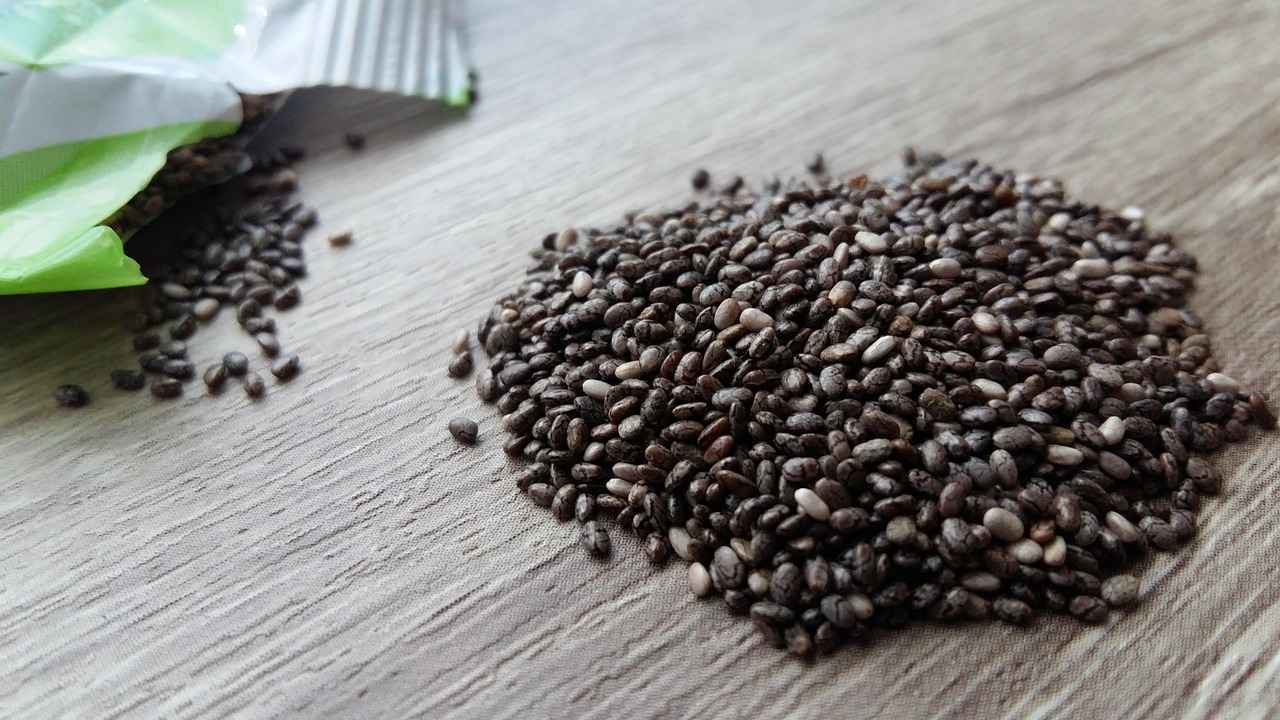
How Do Chia Seeds Promote Digestive Health?
Chia seeds have become increasingly popular in recent years, and for good reason. These tiny seeds are not only packed with nutrients but also offer a plethora of health benefits, particularly when it comes to digestive health. One of the standout features of chia seeds is their high content of soluble fiber, which plays a crucial role in promoting a healthy digestive system.
Soluble fiber is a type of dietary fiber that dissolves in water to form a gel-like substance. This unique property allows it to absorb water and expand in the digestive tract, which can significantly aid in digestion. When consumed, chia seeds can absorb up to 12 times their weight in water, creating a viscous gel that helps to keep the digestive system running smoothly.
The gel-like consistency of chia seeds serves multiple purposes in digestive health:
- Improved Bowel Movements: The gel formed by soluble fiber can help to bulk up stool and facilitate its passage through the intestines, promoting regular bowel movements.
- Prevention of Constipation: By retaining water, the gel helps to soften the stool, making it easier to pass and reducing the risk of constipation.
- Support for Gut Health: The gel-like substance can act as a prebiotic, providing nourishment for beneficial gut bacteria and promoting a balanced microbiome.
Another significant benefit of the soluble fiber in chia seeds is its ability to help regulate blood sugar levels. The gel slows down the absorption of sugar into the bloodstream, which can prevent spikes in blood sugar levels after meals. This is particularly beneficial for individuals with diabetes or those looking to maintain stable energy levels throughout the day.
Chia seeds are excellent for hydration due to their ability to absorb water. Proper hydration is essential for digestive health, as it helps to keep the digestive tract lubricated and functioning efficiently. When chia seeds are consumed with adequate liquid, they can help maintain optimal hydration levels, which is crucial for preventing digestive discomfort.
Incorporating chia seeds into your diet can be both easy and enjoyable. Here are a few practical tips:
- Add chia seeds to smoothies for a nutrient boost.
- Mix them into yogurt or oatmeal for added texture and health benefits.
- Make chia pudding by soaking the seeds in milk or a dairy-free alternative overnight.
While chia seeds offer numerous health benefits, it is essential to consume them in moderation. Some individuals may experience digestive discomfort, such as bloating or gas, if they consume too many chia seeds without adequate hydration. It is advisable to start with a small amount and gradually increase your intake while ensuring you drink plenty of water.
In summary, chia seeds are a remarkable superfood that can significantly enhance digestive health. Their soluble fiber content not only aids in digestion but also provides additional benefits such as blood sugar regulation and hydration support. By incorporating chia seeds into your diet, you can enjoy these health benefits while adding a nutritious element to your meals.
Benefits of Soluble Fiber
are numerous and significantly impact overall health. Soluble fiber, found in foods like chia seeds, oats, and legumes, plays a crucial role in maintaining a healthy body. This article will explore the various benefits of soluble fiber, its mechanisms, and how it can be easily incorporated into your diet.
Soluble fiber is a type of dietary fiber that dissolves in water to form a gel-like substance. This unique property allows it to slow down digestion, contributing to various health benefits. Unlike insoluble fiber, which adds bulk to stool, soluble fiber is more about regulating bodily functions.
One of the most significant benefits of soluble fiber is its ability to help regulate blood sugar levels. When consumed, soluble fiber slows the absorption of sugar, which helps prevent spikes in blood glucose levels. This is particularly beneficial for individuals with diabetes or those at risk of developing the condition. By maintaining stable blood sugar levels, soluble fiber can also help reduce cravings and promote a sense of fullness.
Soluble fiber also plays a vital role in lowering cholesterol levels. It binds with bile acids in the digestive system, which are then excreted from the body. To replace the lost bile acids, the liver pulls cholesterol from the blood, effectively lowering overall cholesterol levels. This mechanism is especially beneficial for heart health, as it reduces the risk of cardiovascular diseases.
In addition to its effects on blood sugar and cholesterol, soluble fiber contributes significantly to overall digestive health. It promotes regular bowel movements by softening stool, making it easier to pass. This can help prevent constipation and maintain a healthy gut environment. Furthermore, soluble fiber acts as a prebiotic, feeding the beneficial bacteria in the gut, which is essential for a balanced microbiome.
Another advantage of soluble fiber is its role in weight management. Foods high in soluble fiber tend to be more filling, which can help control appetite and reduce overall calorie intake. When consumed, the gel-like consistency of soluble fiber expands in the stomach, promoting a feeling of fullness that can last for hours. This can be particularly beneficial for those looking to lose weight or maintain a healthy weight.
Incorporating soluble fiber into your diet is easier than you might think. Here are some practical suggestions:
- Start Your Day with Oatmeal: A bowl of oatmeal is a great source of soluble fiber and can be topped with fruits for added nutrients.
- Add Chia Seeds to Smoothies: Chia seeds are a powerhouse of soluble fiber. Toss a tablespoon into your morning smoothie for a nutritious boost.
- Include Legumes in Your Meals: Beans, lentils, and peas are excellent sources of soluble fiber and can be added to soups, salads, or main dishes.
- Snack on Fruits: Fruits like apples, oranges, and berries are rich in soluble fiber. Enjoy them as snacks or in desserts.
While soluble fiber has numerous health benefits, it’s essential to consume it in moderation. Excessive intake can lead to digestive discomfort, including bloating and gas. It is advisable to increase fiber intake gradually and drink plenty of water to help manage these effects.
In conclusion, the benefits of soluble fiber are extensive, ranging from blood sugar regulation to improved digestive health. By incorporating more soluble fiber-rich foods into your diet, you can enhance your overall well-being and enjoy a healthier lifestyle.
Hydration and Gut Health
Maintaining proper hydration is crucial for overall health, and chia seeds play a significant role in this aspect. These tiny seeds possess a unique ability to absorb liquid, which can be incredibly beneficial for gut health and digestion. When chia seeds are mixed with water or other liquids, they can absorb up to 12 times their weight, forming a gel-like consistency. This characteristic not only enhances hydration but also aids in various digestive processes.
Chia seeds are primarily composed of soluble fiber, which can trap water and create a gel-like substance. This gel is not only hydrating but also helps to slow down digestion, allowing for better nutrient absorption. The ability of chia seeds to retain water means that they can help maintain optimal hydration levels, especially in hot weather or during physical activity. This hydration support is particularly important for individuals who engage in sports or intense workouts.
The gel formed by chia seeds serves multiple purposes for gut health. Firstly, it acts as a natural laxative, promoting regular bowel movements and preventing constipation. This is essential for maintaining a healthy digestive system. Secondly, the gel can help soothe the intestinal lining, reducing inflammation and irritation. This soothing effect can be beneficial for individuals suffering from digestive disorders such as irritable bowel syndrome (IBS).
Chia seeds also support the activity of digestive enzymes. When they absorb liquid, they create an environment that facilitates the breakdown of food particles, making it easier for the body to absorb nutrients. This process is vital for overall digestive efficiency and can contribute to better nutrient utilization. Additionally, the soluble fiber in chia seeds helps to regulate blood sugar levels, which can further support digestive health.
To reap the hydration benefits of chia seeds, consider incorporating them into your daily diet. Here are a few simple ways to do so:
- Chia Seed Water: Mix a tablespoon of chia seeds in a glass of water and let it sit for about 10-15 minutes before drinking. This will create a hydrating gel that you can consume directly.
- Smoothies: Add chia seeds to your favorite smoothie for an extra boost of hydration and nutrition. They blend well and enhance the texture of your drink.
- Overnight Oats: Incorporate chia seeds into overnight oats. The seeds will absorb the liquid from the oats, creating a delicious and hydrating breakfast option.
While chia seeds are generally safe for most people, it is essential to consume them with adequate liquid. Ingesting dry chia seeds without sufficient hydration can lead to digestive discomfort, including bloating or gas. Therefore, always ensure you hydrate properly when consuming chia seeds to maximize their benefits.
In summary, chia seeds are not only a powerhouse of nutrients but also a remarkable ally for maintaining hydration and promoting gut health. Their unique ability to absorb liquid and form a gel-like consistency makes them an excellent addition to a balanced diet. By incorporating chia seeds into your meals, you can enhance your hydration levels while supporting your digestive system.

Can Chia Seeds Help with Weight Management?
Chia seeds, often hailed as a superfood, have gained attention for their potential role in weight management. Their unique properties make them a valuable ally for those looking to maintain or lose weight. But how exactly do these tiny seeds contribute to effective weight management?
High Fiber Content
One of the primary reasons chia seeds are beneficial for weight management is their high fiber content. These seeds contain about 11 grams of fiber per ounce, which is approximately 42% of the recommended daily intake for adults. Fiber is known for its ability to promote satiety, meaning it helps you feel full longer. This can lead to reduced overall calorie intake throughout the day.
Gel-Like Consistency
When chia seeds are mixed with liquid, they absorb up to 12 times their weight in water, forming a gel-like substance. This gel expands in the stomach, creating a sense of fullness and reducing the urge to snack between meals. By incorporating chia seeds into your meals, you may find it easier to control your appetite and avoid unnecessary calorie consumption.
Low-Calorie Nutrient Density
Chia seeds are not only high in fiber but also low in calories. With approximately 137 calories per ounce, they provide a rich source of nutrients without contributing to excessive calorie intake. This makes them an excellent addition to any weight loss diet, as they enhance the nutritional value of meals without adding significant calories.
Regulating Blood Sugar Levels
The soluble fiber in chia seeds can help regulate blood sugar levels by slowing down the absorption of sugar into the bloodstream. This stabilization can prevent sudden spikes and crashes in energy, which often lead to cravings and overeating. By keeping blood sugar levels steady, chia seeds can help you maintain a balanced diet and resist the temptation of unhealthy snacks.
Incorporating Chia Seeds into Your Diet
Adding chia seeds to your diet is simple and versatile. Here are a few practical ways to include them:
- Smoothies: Blend chia seeds into your morning smoothie for an added nutrient boost.
- Oatmeal: Stir chia seeds into your oatmeal or yogurt for a satisfying breakfast.
- Baking: Incorporate chia seeds into baked goods like muffins or bread for added texture and nutrition.
Chia Seed Pudding
Another popular method is to make chia seed pudding. Simply mix chia seeds with your choice of milk or plant-based milk, sweeten to taste, and let it sit in the refrigerator overnight. The result is a delicious and filling snack or breakfast option that can be customized with various toppings such as fruits, nuts, or honey.
Conclusion
In summary, chia seeds can be an effective tool for weight management due to their high fiber content, gel-like consistency, and low-calorie density. By promoting satiety and stabilizing blood sugar levels, they can help you maintain a healthy diet and control your appetite. Incorporating chia seeds into your meals is not only easy but also adds a nutritious boost to your overall diet. So, whether you’re looking to shed a few pounds or simply maintain a healthy lifestyle, consider adding chia seeds to your culinary repertoire.
Feeling Full Longer
Chia seeds have gained significant attention in the health and wellness community, particularly for their unique ability to aid in weight management. One of the most compelling features of these tiny seeds is their gel-like consistency when hydrated, which plays a crucial role in promoting a feeling of fullness. This article explores how chia seeds can help you feel full longer and reduce the urge to snack between meals.
When chia seeds are mixed with liquid, they can absorb up to 12 times their weight, forming a thick gel. This gel-like substance expands in the stomach, creating a sensation of fullness that can last for hours. This natural mechanism is particularly beneficial for those looking to manage their weight, as it can help prevent overeating and unnecessary snacking.
- High Fiber Content: Chia seeds are packed with soluble fiber, which not only aids digestion but also contributes to the feeling of fullness. The fiber slows down the digestion process, allowing for a gradual release of energy.
- Low-Calorie Density: Despite their high fiber content, chia seeds are low in calories, making them an ideal food for weight loss. You can enjoy their benefits without significantly increasing your caloric intake.
- Rich in Nutrients: Chia seeds are a powerhouse of essential nutrients, including omega-3 fatty acids, protein, and various vitamins and minerals. This nutrient density ensures that your body receives the necessary fuel while keeping hunger at bay.
Incorporating chia seeds into your diet is easy and can be done in various ways:
- Chia Seed Pudding: Combine chia seeds with your choice of milk or plant-based milk, add sweeteners or fruits, and let it sit overnight. This creates a delicious and filling breakfast or snack.
- Smoothies: Add a tablespoon of chia seeds to your smoothies for an added boost of fiber and protein. This not only enhances the nutritional profile but also keeps you feeling satisfied.
- Salads and Soups: Sprinkle chia seeds on salads or stir them into soups to increase the fiber content and promote fullness.
Many individuals struggle with cravings between meals, leading to unhealthy snacking habits. Chia seeds can be a game-changer in this regard. By consuming chia seeds before a meal or as a snack, you can effectively reduce hunger pangs and curb cravings. The gel-like consistency helps to stabilize blood sugar levels, which can further minimize the desire to snack impulsively.
While chia seeds are generally safe for most people, it’s important to consume them in moderation. Overconsumption can lead to digestive discomfort, especially if not accompanied by sufficient hydration. Always ensure you drink plenty of water when incorporating chia seeds into your diet to maximize their benefits.
In summary, chia seeds are not only a versatile ingredient but also a powerful ally in promoting satiety and reducing snacking. Their unique gel-like consistency, coupled with their high fiber and nutrient content, makes them an excellent choice for anyone looking to manage their weight effectively. By incorporating chia seeds into your meals, you can enjoy a satisfying and healthful way to curb hunger and support your overall wellness.
Low-Calorie Nutrient Density
Chia seeds have gained immense popularity in recent years, especially among those seeking to improve their health and manage their weight. With minimal calories yet a remarkably high nutritional value, these tiny seeds offer a plethora of benefits that make them an excellent addition to any diet, particularly for those focused on weight loss.
Chia seeds are unique in their ability to provide essential nutrients while being low in calories. Just two tablespoons of chia seeds contain approximately 140 calories, but they are packed with vital nutrients such as:
- 5 grams of protein
- 11 grams of fiber
- Omega-3 fatty acids
- Calcium, magnesium, and iron
The high fiber content in chia seeds plays a crucial role in weight management. Fiber is known to promote a feeling of fullness, which can help reduce overall calorie intake. When chia seeds are consumed, they absorb water and expand in the stomach, forming a gel-like substance that can help you feel satisfied for longer periods. This mechanism is particularly beneficial for those looking to control their appetite and minimize snacking.
Chia seeds are often classified as a superfood due to their impressive nutritional profile. They are not only low in calories but also rich in essential nutrients that support various bodily functions. The combination of protein, fiber, and healthy fats makes them an ideal food for anyone looking to lose weight without sacrificing nutrition.
Adding chia seeds to your meals is simple and can enhance both the flavor and nutritional value of your dishes. Here are some practical ways to include them:
- Smoothies: Blend them into your favorite smoothies for added thickness and nutrition.
- Yogurt and Oatmeal: Stir chia seeds into yogurt or oatmeal for a nutritious breakfast.
- Baking: Incorporate chia seeds into baked goods like muffins and breads.
- Salads: Sprinkle them on salads for a crunchy texture and nutritional boost.
While chia seeds are generally safe for most individuals, consuming them in excess can lead to digestive issues such as bloating or gas, especially if not accompanied by adequate hydration. It’s essential to drink plenty of water when incorporating chia seeds into your diet to help manage their fiber content effectively.
Chia seeds are suitable for a wide range of dietary preferences, including vegetarians and vegans, due to their complete protein profile. They are also gluten-free, making them an excellent option for individuals with gluten sensitivities.
In summary, chia seeds are a nutrient-dense superfood that can significantly aid in weight management due to their low-calorie count and high fiber content. By incorporating them into your daily diet, you can enjoy their numerous health benefits while working towards your weight loss goals. Their versatility makes them easy to add to a variety of meals, providing both nutrition and satisfaction.

How to Incorporate Chia Seeds into Your Diet?
Chia seeds have gained immense popularity in the health and wellness community due to their remarkable nutritional profile and versatility. When it comes to incorporating these tiny powerhouses into your diet, the possibilities are virtually endless. From smoothies to baked goods, chia seeds can enhance both the nutrition and flavor of a variety of dishes.
Chia seeds are not only rich in omega-3 fatty acids, protein, and fiber, but they also offer a unique texture that can elevate your culinary creations. By adding chia seeds to your meals, you can benefit from their nutritional advantages while enjoying a delightful crunch or a creamy consistency, depending on how they are prepared.
- Smoothies: One of the easiest ways to incorporate chia seeds is by adding them to your morning smoothie. Simply blend your favorite fruits, vegetables, and a tablespoon of chia seeds for a nutrient-dense drink.
- Yogurt and Oatmeal: Sprinkle chia seeds on top of yogurt or oatmeal for added texture and nutrition. They can absorb moisture, creating a satisfying contrast with creamy bases.
- Baked Goods: Chia seeds can be added to muffins, bread, and pancakes. They not only boost the nutritional value but also act as a natural egg substitute when mixed with water, making them ideal for vegan recipes.
- Salads: Tossing chia seeds into salads can provide a delightful crunch. They pair well with leafy greens, nuts, and dressings, enhancing both flavor and health benefits.
- Chia Seed Pudding: This trendy dish is made by soaking chia seeds in milk or a milk alternative. After a few hours, the seeds swell and create a pudding-like texture, which can be flavored with vanilla, cocoa, or fruit.
To maximize the health benefits of chia seeds, it is recommended to soak them in water or another liquid before consumption. This process allows them to absorb moisture and expand, creating a gel-like consistency. This not only makes them easier to digest but also enhances their nutritional absorption.
Absolutely! Here are a couple of simple recipes that highlight chia seeds:
1. Chia Seed Pudding: - 1/4 cup chia seeds - 1 cup almond milk - 1 tbsp honey or maple syrup - Mix all ingredients and let sit in the fridge for at least 2 hours or overnight.2. Chia Fresca: - 1 tbsp chia seeds - 1 cup water - Juice of 1/2 lime - Mix chia seeds in water, let sit for 10 minutes, then add lime juice and stir.
To keep chia seeds fresh, store them in an airtight container in a cool, dry place. They can also be refrigerated to extend their shelf life. Proper storage ensures that you maintain their nutritional integrity and flavor.
Incorporating chia seeds into your diet is a simple yet effective way to enhance your overall nutrition. Their versatility allows for easy integration into various dishes, making them a valuable addition to any meal. Whether you prefer them in smoothies, baked goods, or as a topping, chia seeds can elevate your meals while providing essential nutrients for a healthier lifestyle.
Simple Recipes with Chia Seeds
Chia seeds, often hailed as a superfood, can be seamlessly integrated into a variety of dishes, enhancing both their nutritional value and flavor. Their unique properties make them a favorite among health enthusiasts. Below are some simple recipes that showcase the versatility of chia seeds.
Incorporating chia seeds into your meals can be as simple as adding them to yogurt, oatmeal, or salads for a nutritious boost. Here are some practical ways to enjoy chia seeds:
- Chia Seed Smoothie: Blend your favorite fruits with a tablespoon of chia seeds for an energizing breakfast. The seeds will add a delightful texture and keep you full longer.
- Overnight Oats: Mix rolled oats with milk or yogurt and a tablespoon of chia seeds. Let it sit overnight, and in the morning, you’ll have a creamy, nutrient-packed breakfast ready to enjoy.
- Chia Seed Salad Dressing: Combine olive oil, vinegar, and chia seeds for a healthy dressing. The seeds will thicken the dressing and add a nutty flavor.
One of the most popular ways to consume chia seeds is through chia seed pudding. This dish is not only simple to make but also customizable to suit your taste:
Ingredients:- 1/4 cup chia seeds- 1 cup almond milk (or any milk of your choice)- 1-2 tablespoons honey or maple syrup- Toppings: fruits, nuts, or coconut flakesInstructions:1. In a bowl, mix the chia seeds, almond milk, and sweetener.2. Stir well and let it sit for about 10 minutes, then stir again to prevent clumping.3. Cover and refrigerate for at least 2 hours or overnight.4. Serve with your favorite toppings.
Chia seeds can also be incorporated into baking. Here’s how:
- Chia Seed Muffins: Substitute a portion of the flour in your muffin recipe with ground chia seeds for added nutrition.
- Chia Seed Energy Bars: Mix oats, nut butter, honey, and chia seeds, then press into a pan and refrigerate for a quick snack.
Chia seeds can elevate your snacking game:
- Chia Seed Crackers: Mix chia seeds with water, spread onto a baking sheet, and bake until crispy for a healthy snack.
- Chia Seed Granola: Add chia seeds to your homemade granola for extra crunch and nutrition.
Incorporating chia seeds into your meals not only boosts their nutritional content but also offers numerous health benefits. These tiny seeds are rich in omega-3 fatty acids, fiber, and protein, making them an excellent addition to any diet. They help in promoting digestive health, supporting heart health, and keeping you satiated, which is beneficial for weight management.
In conclusion, the versatility of chia seeds makes them an easy and nutritious addition to your daily meals. Whether you’re blending them into smoothies, making puddings, or enhancing your baked goods, chia seeds provide a simple way to boost your health and enjoy delicious flavors.
Chia Seed Pudding
has gained immense popularity as a nutritious and versatile dish that can serve as both a delightful snack and a wholesome breakfast option. The beauty of chia seed pudding lies in its simplicity and adaptability, allowing individuals to experiment with various flavors and toppings to suit their taste preferences.
The appeal of chia seed pudding stems from its nutritional benefits and the ease with which it can be prepared. Chia seeds are rich in omega-3 fatty acids, fiber, and protein, making them a powerhouse of nutrients. When combined with liquid, these tiny seeds absorb the moisture and swell, creating a creamy, gel-like texture that is both satisfying and filling.
Creating chia seed pudding is incredibly straightforward. Here’s a simple recipe to get you started:
- Ingredients:
- 1/4 cup chia seeds
- 1 cup almond milk (or any milk of your choice)
- 1-2 tablespoons sweetener (like honey, maple syrup, or agave)
- 1/2 teaspoon vanilla extract
- Optional toppings: fruits, nuts, granola, or coconut flakes
Instructions:
1. In a bowl, combine chia seeds, milk, sweetener, and vanilla extract.2. Stir well to prevent clumping.3. Cover the bowl and refrigerate for at least 2 hours or overnight.4. Once thickened, stir again and serve with your favorite toppings.
The versatility of chia seed pudding allows for endless flavor combinations. Here are some popular variations:
- Chocolate Delight: Add cocoa powder or melted dark chocolate for a rich treat.
- Berry Bliss: Mix in fresh or frozen berries for a refreshing twist.
- Coconut Dream: Use coconut milk and top with shredded coconut for a tropical flavor.
- Spiced Pumpkin: Incorporate pumpkin puree and spices like cinnamon and nutmeg for a fall-inspired pudding.
Beyond being delicious, chia seed pudding offers numerous health benefits:
- Supports Digestive Health: The high fiber content aids in digestion and promotes a healthy gut.
- Boosts Energy Levels: The combination of protein and healthy fats provides sustained energy throughout the day.
- Helps with Weight Management: The gel-like texture promotes satiety, helping to curb hunger and reduce snacking.
Absolutely! Chia seed pudding is perfect for meal prep. You can prepare several servings in advance and store them in the refrigerator for up to five days. This makes it an ideal choice for busy mornings or quick snacks.
Chia seed pudding is not just a trend; it’s a nutrient-rich dish that can easily be tailored to fit your dietary needs and preferences. With its numerous health benefits and endless flavor possibilities, it’s a fantastic addition to any meal plan. Whether you enjoy it for breakfast, dessert, or a snack, chia seed pudding is sure to satisfy your cravings while nourishing your body.
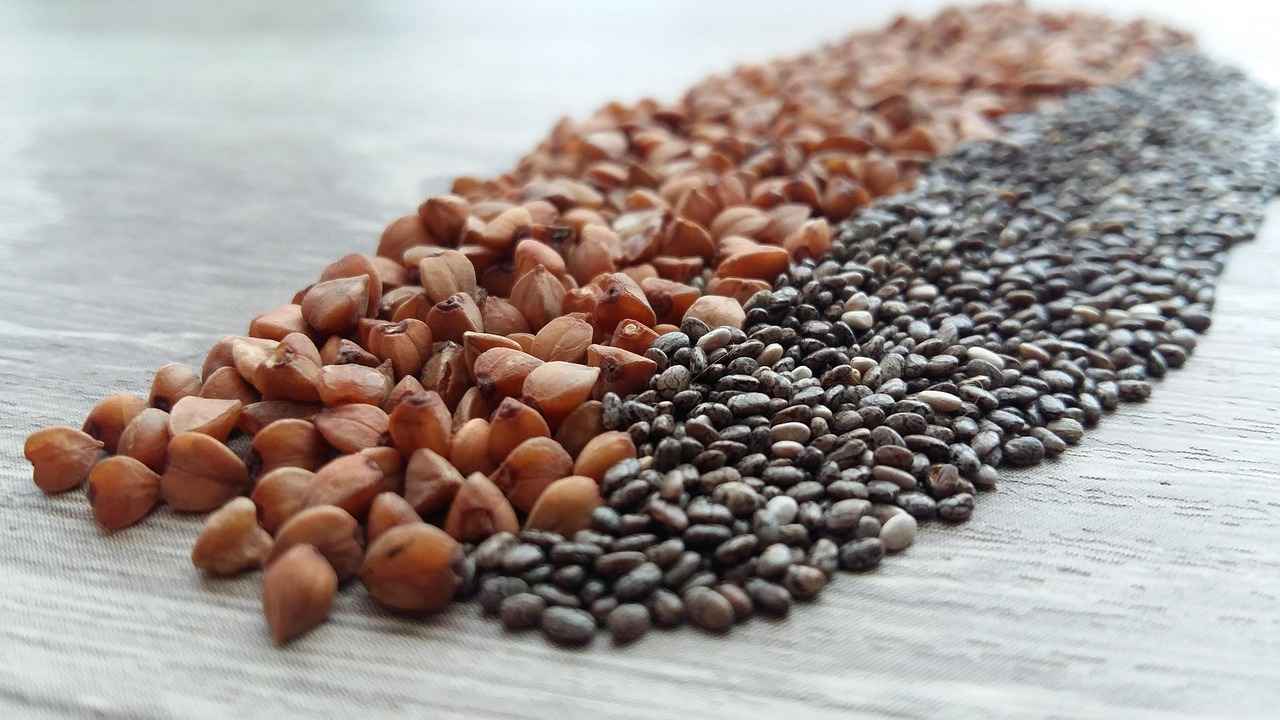
Are There Any Side Effects of Chia Seeds?
Chia seeds have gained immense popularity as a health food, celebrated for their numerous benefits. However, like many superfoods, they can have side effects for certain individuals. Understanding these potential issues is essential for anyone considering adding chia seeds to their diet.
While chia seeds are generally recognized as safe, some individuals may experience digestive discomfort when consuming them in excess or without adequate hydration. This discomfort can manifest in various forms, including bloating, gas, or even constipation.
The primary reason behind digestive issues related to chia seeds lies in their high fiber content. Chia seeds are rich in soluble fiber, which absorbs water and expands in the stomach. If consumed without sufficient liquid, they can swell excessively, leading to discomfort. It’s crucial to drink plenty of water when incorporating chia seeds into your diet to prevent such issues.
Moderation is key. Experts recommend starting with 1 to 2 tablespoons of chia seeds per day. Gradually increasing your intake allows your digestive system to adjust. If you experience discomfort, consider reducing the amount or ensuring you are consuming enough fluids.
Though rare, some individuals may have an allergic reaction to chia seeds. Symptoms can include itching, swelling, or gastrointestinal distress. If you suspect you have an allergy, it is advisable to stop consuming chia seeds and consult a healthcare professional.
Individuals with specific allergies or digestive disorders should approach chia seeds with caution. Those with conditions like irritable bowel syndrome (IBS) or other gastrointestinal issues may find that chia seeds exacerbate their symptoms. Consulting with a healthcare provider before introducing chia seeds into your diet is recommended.
- Hydrate: Always drink plenty of water when consuming chia seeds to aid digestion.
- Start Slow: Begin with a small amount and gradually increase your intake.
- Mix Well: Incorporate chia seeds into smoothies, yogurt, or oatmeal to help them absorb liquid effectively.
Pay attention to how your body reacts after consuming chia seeds. If you notice any adverse effects, such as bloating or discomfort, it may be best to adjust your intake or consult a healthcare professional. Listening to your body is crucial when adding new foods to your diet.
Chia seeds are a nutrient-dense superfood that can offer numerous health benefits, but they are not suitable for everyone. By understanding the potential side effects and following best practices for consumption, you can enjoy the advantages of chia seeds while minimizing any discomfort. Always prioritize hydration and moderation for a healthy experience.
Potential Allergies
Chia seeds are celebrated for their numerous health benefits, but it’s important to recognize that they may not be suitable for everyone. to chia seeds, although relatively rare, can occur and may lead to various symptoms that require attention. Understanding these potential reactions is crucial for anyone considering adding chia seeds to their diet.
Individuals who are allergic to chia seeds may experience a range of symptoms. These can include:
- Itching: This may occur on the skin or around the mouth after consuming chia seeds.
- Swelling: Some people may notice swelling in the face, lips, or throat, which can be alarming.
- Digestive Issues: Symptoms such as nausea, vomiting, or diarrhea may arise in response to chia seed consumption.
- Respiratory Problems: In some cases, individuals may experience difficulty breathing or wheezing.
While anyone can develop an allergy, certain individuals may be at a higher risk:
- Those with existing allergies: Individuals with a history of allergies, particularly to other seeds or nuts, may be more likely to react to chia seeds.
- People with autoimmune conditions: Some autoimmune disorders can increase the likelihood of developing food allergies.
If you suspect that you or someone you know may be allergic to chia seeds, it’s essential to take the following steps:
- Consult a healthcare professional: A doctor or allergist can provide proper testing and diagnosis.
- Avoid chia seeds: If an allergy is confirmed, it’s best to eliminate chia seeds from your diet entirely.
- Read labels carefully: Many products may contain chia seeds, so it’s crucial to check ingredient lists.
In the event of an allergic reaction, it’s important to act quickly:
- Seek immediate medical attention: If symptoms are severe, especially swelling or difficulty breathing, call emergency services.
- Use an antihistamine: For mild reactions, over-the-counter antihistamines may help alleviate symptoms.
If you have a chia seed allergy, there are several nutritious alternatives you can consider:
- Flaxseeds: Rich in omega-3 fatty acids and fiber, flaxseeds can be a great substitute.
- Hemp seeds: These seeds are also high in protein and healthy fats, making them a suitable alternative.
- Psyllium husk: This is another fiber-rich option that can be used in recipes that call for chia seeds.
In conclusion, while chia seeds are a fantastic superfood for many, it’s essential to be aware of the potential for allergic reactions. By understanding the symptoms, risks, and management strategies, you can make informed decisions about including chia seeds in your diet. Always consult with a healthcare professional if you have concerns about allergies or dietary changes.
Digestive Issues
Chia seeds are widely celebrated for their health benefits, but it’s essential to understand that, like any food, they can cause for some individuals. While these tiny seeds are packed with nutrients, overconsumption can lead to discomfort such as bloating or gas. This can be particularly pronounced if chia seeds are not consumed with adequate liquid.
When chia seeds are introduced into your diet, they absorb water and expand significantly. This property is beneficial for hydration and digestive health; however, if you consume them without enough fluid, the seeds can swell in your stomach, leading to a feeling of fullness that may be uncomfortable. It’s crucial to ensure that you drink plenty of water when incorporating chia seeds into your meals.
| Potential Digestive Issues | Symptoms | Prevention Strategies |
|---|---|---|
| Bloating | Feeling of fullness, discomfort | Increase water intake |
| Gas | Flatulence, abdominal pain | Gradually increase consumption |
| Constipation | Infrequent bowel movements | Combine with high-fiber foods |
To mitigate these digestive issues, it is advisable to start with small amounts of chia seeds. A typical recommendation is to begin with one tablespoon per day and gradually increase the quantity as your body adjusts. This gradual approach allows your digestive system to adapt to the increased fiber intake, minimizing the risk of discomfort.
Moreover, the fiber content in chia seeds, while beneficial for digestion, can also be a double-edged sword. A sudden increase in fiber intake can overwhelm the digestive system, leading to gastrointestinal distress. Therefore, it’s important to balance chia seeds with other sources of fiber and maintain a well-rounded diet.
Another factor to consider is individual tolerance. Some people may have a higher sensitivity to chia seeds, experiencing digestive upset even with moderate consumption. If you notice persistent discomfort, it may be wise to consult with a healthcare professional or a registered dietitian to evaluate your dietary habits and determine the best course of action.
In summary, while chia seeds offer numerous health benefits, including improved digestion and weight management, moderation is key. By consuming them in appropriate amounts and ensuring adequate hydration, you can enjoy the advantages of this superfood while minimizing the risk of digestive issues. Always listen to your body, and if discomfort arises, adjust your intake accordingly.
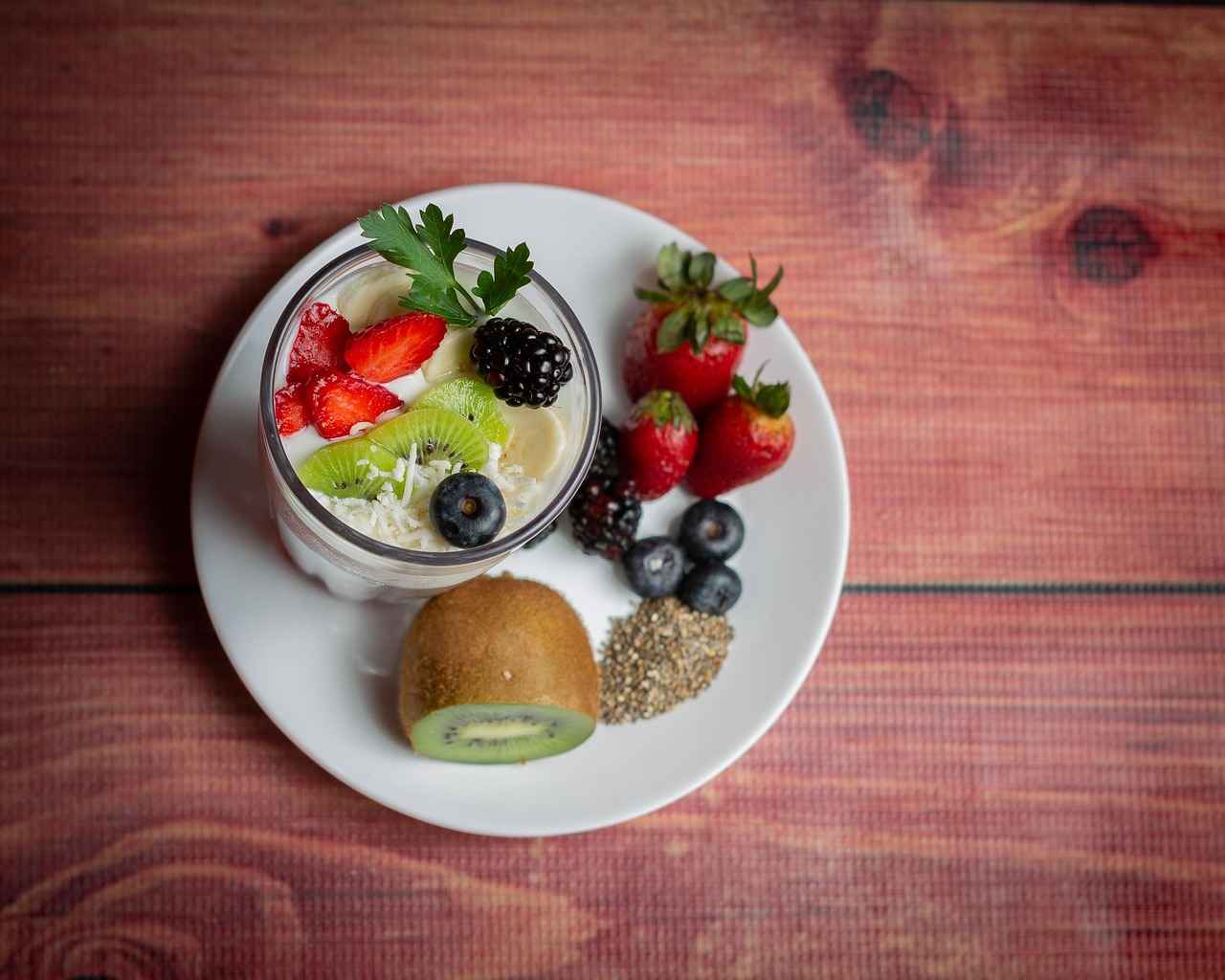
Who Should Avoid Chia Seeds?
Chia seeds are often hailed as a superfood, packed with nutrients and health benefits. However, they are not suitable for everyone. Understanding who should avoid chia seeds is crucial for maintaining a healthy diet. Below, we explore the groups of individuals who may need to exercise caution.
Some individuals may experience allergic reactions to chia seeds. While allergic reactions are relatively rare, they can occur. Symptoms may include:
- Itching or hives
- Swelling of the face, lips, or throat
- Difficulty breathing or wheezing
If you have a history of allergies to similar seeds, such as flaxseed or sesame seeds, it is advisable to consult a healthcare provider before introducing chia seeds into your diet.
Individuals with certain digestive disorders should be cautious when consuming chia seeds. Conditions such as:
- Irritable Bowel Syndrome (IBS)
- Inflammatory Bowel Disease (IBD)
- Gastroparesis
These conditions may be exacerbated by the high fiber content in chia seeds, leading to symptoms like bloating, gas, or abdominal pain. It is essential for individuals with these disorders to consult a healthcare provider before adding chia seeds to their diet.
While chia seeds are generally nutritious, pregnant and nursing women should approach their consumption with caution. The high fiber content can lead to digestive discomfort, and the effects of chia seeds on pregnancy and lactation are not fully understood. Consulting a healthcare provider is recommended to ensure safety during these critical periods.
Chia seeds are rich in omega-3 fatty acids, which have blood-thinning properties. For individuals taking anticoagulant medications, such as warfarin, consuming large amounts of chia seeds may increase the risk of bleeding. It is crucial to discuss with a healthcare provider before making significant dietary changes.
Chia seeds can have a mild hypotensive effect, potentially lowering blood pressure. Individuals with already low blood pressure should be cautious, as excessive consumption may lead to symptoms like dizziness or fainting. Monitoring blood pressure and consulting a healthcare provider can help manage this risk.
If you fall into any of the above categories, it is wise to seek advice from a healthcare professional. They can provide personalized recommendations based on your health history and dietary needs. Always remember that moderation is key, even with healthy foods like chia seeds.
In summary, while chia seeds offer numerous health benefits, certain individuals should avoid them or consume them with caution. Understanding your body and its needs is essential for maintaining a balanced and healthy diet.
Consulting a Healthcare Professional
When considering the addition of chia seeds to your diet, it is crucial to prioritize your health and well-being. Consulting a healthcare professional is especially important for individuals with pre-existing health conditions. This step ensures that you are making informed decisions about your nutrition and that the inclusion of new superfoods aligns with your specific health needs.
Introducing any new food, particularly superfoods like chia seeds, can have varying effects on different individuals. Here are some reasons why seeking medical advice is essential:
- Personalized Health Assessment: A healthcare provider can evaluate your overall health status, including any underlying conditions that may be affected by dietary changes.
- Medication Interactions: Some individuals may be on medications that could interact with the high fiber content of chia seeds, potentially affecting absorption or effectiveness.
- Allergy Considerations: If you have a history of allergies, particularly to seeds or nuts, consulting a professional can help determine if chia seeds are safe for you.
There are specific health conditions where caution is advised when introducing chia seeds:
- Digestive Disorders: Individuals with conditions like irritable bowel syndrome (IBS) or inflammatory bowel disease (IBD) may experience discomfort from high-fiber foods.
- Blood Sugar Management: Those with diabetes should monitor their blood sugar levels closely, as chia seeds can influence blood glucose levels.
- Heart Conditions: While chia seeds are beneficial for heart health, individuals with certain cardiovascular conditions should consult their doctor before making dietary changes.
To maximize the effectiveness of your consultation, consider the following steps:
- Keep a Food Diary: Document your current diet and any symptoms you experience, which can provide valuable information to your healthcare provider.
- List Your Medications: Include all medications, supplements, and herbal products you are currently taking to assess potential interactions.
- Prepare Questions: Think about what you want to know regarding chia seeds and their effects on your health, ensuring you address all concerns during your appointment.
After your consultation, your healthcare provider may offer tailored advice, such as:
- Dietary Recommendations: Suggestions on how to safely incorporate chia seeds into your diet based on your health profile.
- Monitoring Guidelines: Instructions on how to monitor your body’s response to chia seeds, including any necessary adjustments to your overall diet.
- Follow-Up Appointments: Arrangements for follow-up visits to evaluate how your body is responding to the new dietary changes.
In conclusion, while chia seeds are a nutrient-rich superfood that can offer numerous health benefits, it is vital to approach their introduction with caution if you have existing health conditions. By consulting a healthcare professional, you can ensure that your dietary choices support your health goals and do not inadvertently cause harm.
Moderation is Key
When it comes to incorporating chia seeds into your diet, it is crucial to remember that even the healthiest foods can have adverse effects when consumed in excessive amounts. Moderation is essential to fully enjoy the benefits of chia seeds while minimizing potential side effects.
Chia seeds are often celebrated for their impressive nutritional profile, rich in omega-3 fatty acids, fiber, and protein. These tiny seeds can significantly enhance your overall health when included as part of a balanced diet. However, it’s important to recognize that overindulgence can lead to discomfort.
While chia seeds are a powerhouse of nutrition, consuming them in large quantities can lead to digestive issues. The high fiber content, while beneficial for gut health, can cause bloating, gas, or even constipation if your body is not accustomed to it. It is advisable to start with small amounts, gradually increasing your intake to allow your digestive system to adjust.
- Recommended Serving Size: A common serving size is about 1-2 tablespoons per day.
- Listen to Your Body: Pay attention to how your body reacts after consuming chia seeds.
- Stay Hydrated: Ensure adequate water intake when consuming chia seeds, as they absorb liquid and expand in your stomach.
Overconsumption of chia seeds can lead to several side effects, including:
- Digestive Discomfort: Symptoms like bloating and gas may occur if you suddenly increase your fiber intake.
- Choking Hazard: If chia seeds are consumed dry without adequate liquid, they can swell and pose a choking risk.
- Allergic Reactions: Though rare, some individuals may experience allergic reactions, leading to symptoms such as itching or swelling.
To enjoy the benefits of chia seeds without the risks, consider the following best practices:
- Gradual Introduction: Start with a small amount and gradually increase as tolerated.
- Mix with Liquids: Soak chia seeds in water or other liquids before consumption to avoid digestive issues.
- Combine with Other Foods: Add chia seeds to smoothies, yogurt, or oatmeal for a balanced meal.
If you have existing health conditions or are unsure about incorporating chia seeds into your diet, it’s always a good idea to consult with a healthcare provider. They can provide personalized advice based on your health history and dietary needs.
In conclusion, while chia seeds are a nutritious addition to your diet, moderation is key. By being mindful of your intake and listening to your body, you can enjoy the numerous health benefits of chia seeds without experiencing adverse effects. Remember, a balanced approach to nutrition is always the best strategy for long-term health and wellness.
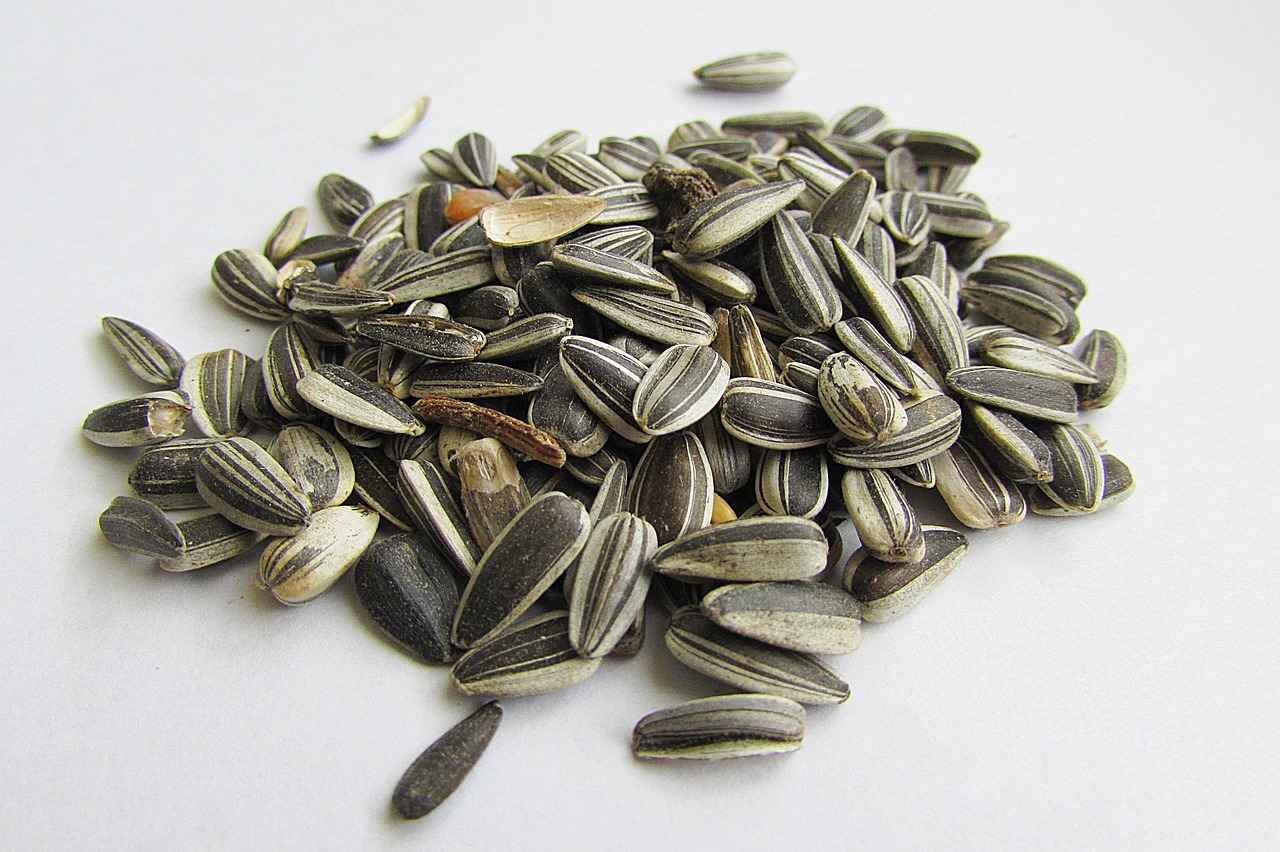
Final Thoughts on Chia Seeds
Chia seeds have emerged as a nutrient-dense superfood that can significantly enhance your overall health and well-being. These tiny seeds, derived from the Salvia hispanica plant, are packed with essential nutrients and health benefits, making them a valuable addition to any balanced diet. Their unique properties and versatility allow for easy incorporation into various meals, enriching both flavor and nutrition.
What Makes Chia Seeds Unique?
Chia seeds are often recognized for their remarkable nutritional profile. They are rich in omega-3 fatty acids, fiber, protein, and a variety of essential minerals, such as calcium and magnesium. This combination of nutrients contributes to their status as a superfood, appealing to health-conscious individuals looking to boost their diets.
How Do Chia Seeds Benefit Your Health?
- Heart Health: The omega-3 fatty acids in chia seeds are known to promote cardiovascular health by reducing inflammation and lowering cholesterol levels.
- Weight Management: Their high fiber content can help you feel full longer, aiding in weight control by curbing unnecessary snacking.
- Digestive Support: Chia seeds are an excellent source of soluble fiber, which aids in digestion and promotes regularity.
How to Incorporate Chia Seeds into Your Daily Diet?
Incorporating chia seeds into your meals is easy and can be done in numerous ways. Here are some practical suggestions:
- Add chia seeds to your morning smoothie for a nutritious boost.
- Mix them into yogurt or oatmeal for added texture and health benefits.
- Use chia seeds as a thickening agent in soups and sauces.
- Prepare chia seed pudding by soaking the seeds in milk or a dairy alternative overnight.
Are There Any Precautions to Consider?
While chia seeds are generally safe for most people, it is essential to consume them in moderation. Some individuals may experience digestive discomfort if they eat too many seeds without adequate hydration. Additionally, those with specific allergies or digestive disorders should consult a healthcare professional before including chia seeds in their diet.
Final Thoughts
In summary, chia seeds are a versatile and nutrient-rich addition to any diet. Their numerous health benefits, coupled with their ability to enhance various dishes, make them a popular choice among health enthusiasts. Whether you are looking to improve your heart health, manage your weight, or support your digestive system, chia seeds can play a significant role in achieving your wellness goals. By incorporating them into your meals with creativity and care, you can enjoy both their health benefits and delightful taste.
Frequently Asked Questions
- What are the main health benefits of chia seeds?
Chia seeds are packed with omega-3 fatty acids, fiber, protein, and essential minerals. They promote heart health, aid digestion, and can help with weight management by keeping you feeling full longer.
- How can I incorporate chia seeds into my diet?
You can easily add chia seeds to smoothies, yogurt, oatmeal, or salads. They also make a delicious chia seed pudding, which you can customize with your favorite flavors and toppings.
- Are there any side effects of consuming chia seeds?
While generally safe, consuming chia seeds in excess or without enough water can cause digestive discomfort like bloating or gas. It’s important to stay hydrated when eating them.
- Who should avoid chia seeds?
Individuals with specific allergies or digestive disorders should consult a healthcare provider before adding chia seeds to their diet. Moderation is key, even with healthy foods!
- Can chia seeds help with weight loss?
Yes! The high fiber content in chia seeds helps you feel full longer, which can reduce overall calorie intake and support weight management efforts.
